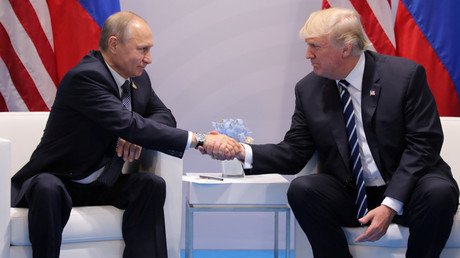US & Russia agree ceasefire in southwest Syria ‒ Lavrov
The US and Russia have agreed on a ceasefire in southwest Syria, set to take effect on July 9 at noon Damascus time, Russian Foreign Minister Sergey Lavrov has announced.
Lavrov was speaking following the landmark meeting between the Russian and US presidents on the fringes of the G20 summit.
“In this zone [in southern Daraa, Quneitra and As-Suwayda provinces] the ceasefire regime will take effect on July 9 starting 12:00 Damascus time,” Lavrov said. “The US took an obligation that all the militant groups, located there, will comply with the ceasefire.”
The ceasefire was agreed to by experts from Russia, the US and Jordan, who negotiated a memorandum on the creation of a de-escalation zone in southwestern Syria at talks in Jordan’s capital, Amman.
“At first, the security around this de-escalation zone will be maintained with the help of Russian military police in coordination with the Jordanians and Americans,” Lavrov said.
The ceasefire agreement shows the US and Russia can work together on solving the Syrian crisis, US Secretary of State Rex Tillerson said at a separate news conference following the meeting between Putin and Trump.
"I think this is our first indication of the US and Russia being able to work together in Syria, and as a result of that we had a very lengthy discussion regarding other areas in Syria that we can continue to work together on to de-escalate the areas," Reuters cited Tillerson as saying.
The deal is separate from the draft agreement on de-escalation zones, which were to be created under a deal brokered earlier this year during Russia, Turkey and Iran-sponsored talks in Astana between the Syrian government and representatives of the armed opposition.
While the discussions on the borders and mechanisms of de-escalation zones have been ongoing this week, a final agreement has not yet been signed.
The US and Russia had previously negotiated a ceasefire in Syria in September 2016, but it collapsed after US jets bombed a Syrian government position, leading Moscow to wonder if the Pentagon was undermining the State Department’s efforts.
“This will be a matter of trust,” former CIA analyst Ray McGovern told RT. “It’s going to be pretty soon when we find out whether Putin can trust that Trump has enough power not to be subverted.”














